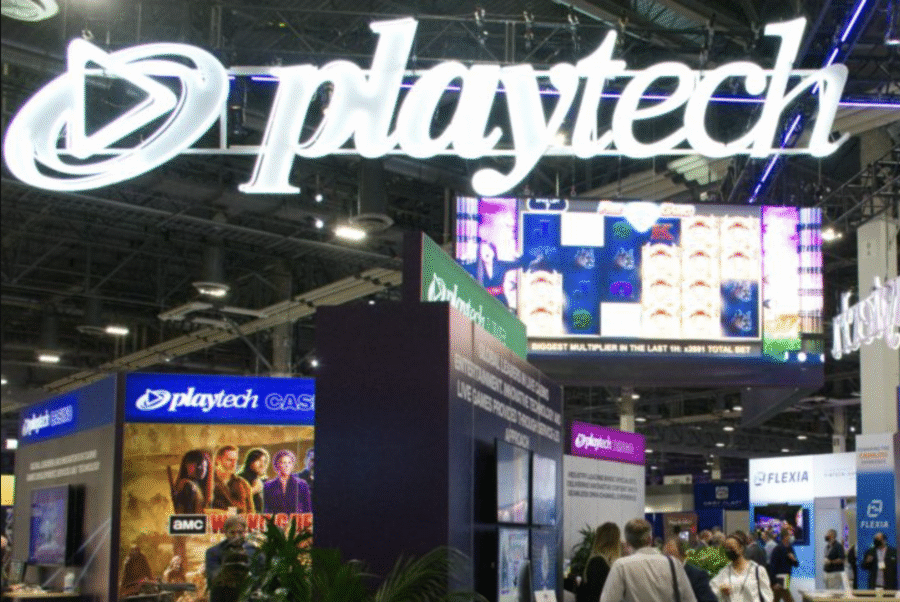Playtech rejects Evolution’s ‘smear campaign’ allegation

Playtech has released a statement denying accusations made by rival game developer Evolution that it organized a smear campaign to damage the latter’s reputation and business.
The statement released on Tuesday said, “The suggestion that [Playtech’s] subsidiary, Playtech Software Limited (PTS), engaged in a smear campaign is wholly untrue and is designed to distract from serious questions about Evolution’s business practices.”
The dispute centers on a controversial 2021 report, commissioned by Playtech and produced by private intelligence firm Black Cube. Evolution alleges the report, which accused it of operating in unregulated jurisdictions and supplying unlicensed operators, was defamatory and produced using deceptive tactics, including impersonations and secret recordings.
A New Jersey court recently ruled the report false and designed to harm Evolution for competitive advantage.
Despite the legal setback, Playtech maintains that the report was a lawful and necessary response to repeated concerns raised by stakeholders across the gambling sector. It says the investigation highlighted regulatory risks with significant commercial implications, and that the findings should be scrutinized in court rather than dismissed.
“PTS commissioned an independent business intelligence firm to investigate credible and repeated concerns raised by operators, suppliers and regulators about Evolution’s activities in prohibited and sanctioned markets, and its supply to unlicensed operators in regulated markets,” the supplier said in its statement. “The investigation was undertaken lawfully to better understand and verify concerns of significant regulatory and commercial importance.”
The statement went on to say that the findings of the report evidence conduct that “damages trust in the credibility of the entire industry and also ultimately impacts government tax collection.”
The company said it “stands by the decision to commission the report”, and “welcomes court examination of the report and its findings.”
“Playtech is confident that these proceedings will confirm the credibility and legitimacy of the investigation and the importance of the issues it seeks to address,” it added.
The legal wrangling is likely to continue into 2026. Although Playtech said that it welcomed the judicial review of the report and that it stands by the investigation’s legitimacy, it is likely to come under further critical scrutiny in the months ahead.
Abi Bray brings strong researching skills to the forefront of all of her writing, whether it’s the newest slots, industry trends or the ever changing legislation across the U.S, Asia and Australia, she maintains a keen eye for detail and a passion for reporting.
Verticals:
Sectors:
Topics:
Dig Deeper
The Backstory
How a private probe turned into a public fight
The dispute traces back to a 2021 dossier commissioned by Playtech subsidiary PTS and prepared by private intelligence firm Black Cube. Evolution says the report was built on impersonations, false identities and secret recordings, then seeded to regulators and media to tarnish its reputation. After years of litigation in the United States, a New Jersey court concluded the claims were false and crafted for competitive gain. Evolution publicly named Playtech on Oct. 21 and framed the episode as a coordinated smear, saying it would hold all participants to account. The company’s detailed account of the report’s path through regulators and the courts, as well as the conduct it alleges by investigators, is outlined in Evolution’s statement naming Playtech and describing the alleged campaign.
Playtech now rejects that narrative and says the investigation addressed industrywide concerns about compliance and risk in regulated and prohibited markets. The company maintains the inquiry was lawful, targeted issues raised by operators and regulators, and merits judicial scrutiny rather than dismissal. That stance sets the stage for a protracted legal and reputational battle, with both sides signaling they are prepared for a long runway in court.
New Jersey becomes the legal crucible
The legal pivot point came in New Jersey. In February, the state’s Superior Court ordered the New York law firm that submitted the dossier to reveal its anonymous client. The court went on to find the report untruthful and harmful to Evolution’s business. Evolution says Black Cube still withholds materials despite discovery orders, adding a discovery drama to the broader case. The same market is also commercially important for both companies: Evolution has been expanding its footprint in the state, and Playtech is growing its content distribution with operators that serve New Jersey’s regulated market.
Evolution underlined its momentum by rolling out its Ezugi live casino brand in New Jersey earlier this month, with Michigan next in line. That expansion, paired with its legal broadside, sharpened competitive contrasts in the U.S. live dealer space. The launch details are in Evolution’s disclosure that also confirmed Playtech’s role in the 2021 report.
Commercial stakes in a growth corridor
Beyond the courtroom, both companies are jockeying for position in fast-growing U.S. markets. Playtech has been adding branded, interactive experiences with established casino brands to differentiate its offering. In New Jersey, Hard Rock Digital and Playtech recently introduced a customizable, scheduled game show format for real-money play. The product is designed to create appointment viewing and repeat engagement, reflecting a broader push to match gaming content with streaming-era habits. Details are in Hard Rock Digital’s launch of a Playtech-powered live trivia experience.
Playtech’s strategy leans on U.S. partnerships and live content. The company signed with Ocean Casino and Delaware North and unveiled MGM Live, a streamed table-games brand broadcasting from the MGM Grand and Bellagio floors. Management says those alliances, paired with distribution deals with Hard Rock Digital and DraftKings, position the supplier for continued growth as the U.S. iGaming market expands. That roadmap, including a forecast for market growth through 2027, is laid out in Playtech’s annual results and partnership update.
Financial and reputational crosscurrents
Playtech’s latest results show resilience but slowing topline momentum. Revenue rose 4.9% to €1.79 billion in 2024, a deceleration from prior years, while core business-to-business EBITDA climbed 22%. The company’s transformation accelerated with the sale of Snaitech to Flutter for €2.3 billion, nearly tripling its investment and underscoring a pivot to a B2B-led profile. The figures and deal context are in Playtech’s revenue report.
The litigation adds risk to that trajectory. Evolution’s Oct. 21 disclosure coincided with a sharp market reaction, with Playtech’s shares falling as investors weighed potential damages, discovery exposure and partner sensitivity to controversy. Evolution’s characterization of a coordinated smear, and the New Jersey court’s findings, amplify the reputational stakes in a sector where licensing and partner approvals hinge on probity and regulatory comfort. For Evolution, a legal win could blunt competitive threats and discourage similar campaigns. For Playtech, pushing for judicial review of the dossier’s assertions is as much about defending its due diligence rationale as it is about limiting financial and commercial fallout. Those market and legal dynamics are set out in Evolution’s account of the legal rulings and the share-price reaction.
Boardroom signals and governance posture
Playtech’s board is also in transition. The company named DAZN veteran John Gleasure as independent nonexecutive director and chairman elect, with the handoff planned after the May annual meeting. The appointment comes as Playtech emphasizes its B2B pivot, global partnerships and technology platform. Governance continuity and external experience could help steady investor sentiment and guide responses to regulatory and legal pressure. Gleasure’s background in sports media and distribution may also aid Playtech’s push into content-led, entertainment-focused gaming experiences. The leadership changes are detailed in Playtech’s board announcement.
Shareholder concerns now center on litigation risk, partnership durability and licensing exposure. A strengthened chair could signal tighter oversight as the company defends its investigative choices in court and seeks to keep U.S. expansion on track.
Policy winds and the compliance narrative
The fight over alleged deceptive tactics lands in a policy environment wary of gambling industry influence. In Australia, an independent senator and former national rugby captain refused to rejoin a parliamentary sports club over a sponsorship by a wagering lobby, citing concerns about access and integrity. The controversy prompted resignations and calls for clearer rules on sponsorships and lobbying. While far from the New Jersey courtroom, the episode reflects a broader scrutiny of how gambling interests engage with policymakers and the public. The debate is outlined in coverage of the Australian senator’s stand against a gambling lobby sponsor.
For Playtech and Evolution, the broader climate raises the cost of missteps. Allegations about conduct in restricted markets or the use of covert intelligence tools complicate licensing discussions and partner perceptions. As both companies expand in regulated jurisdictions, the legal record forming in New Jersey will shape not only damages and reputational outcomes but also how regulators and counterparties assess their compliance cultures.








